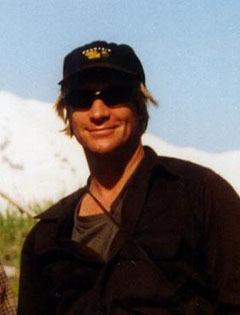A Quote by Wendell Berry
To be well used, creatures and places must be used sympathetically, just as they must be known sympathetically to be well known...The "animal scientist" to whom it is of no concern whether or not animals suffer will almost inevitably aid and abet the destruction of the decent old ideal of animal husbandry and, as a consequence, increase the suffering of animals. I hope that my country may be delivered from the remote, cold abstractions of university science.
Related Quotes
The problem is that for almost any feature of humanity that you can name, whether it's the ability to suffer, whether it's the capacity to reason, whether it's having lives that can go better or worse, there are at least some other non-human animals that have all of these features as well. So to exclude non-human animals from the range of moral concern but to include all humans, just seems morally arbitrary.
I am still passionate about Grizzly bears as well as the rest of the animal kingdom and I understand now how precious people are that stand for all of the animal kingdom. I would like to work extensively with the animals as well as bringing forth awareness to those on earth that have similar passions for animals as I had.
As Jeremy Bentham had asked about animals well over two hundred years ago, the question was not whether they could reason or talk, but could they suffer? And yet, somehow, it seemed to take more imagination for humans to identify with animal suffering than it did to conceive of space flight or cloning or nuclear fusion. Yes, she was a fanatic in the eyes of most of the country. . .Mostly, however, she just lacked patience for people who wouldn't accept her belief that humans inflicted needless agony on the animals around them, and they did so in numbers that were absolutely staggering.
I believe that the best way to create good living conditions for any animal, whether it's a captive animal living in a zoo, a farm animal or a pet, is to base animal welfare programs on the core emotion systems in the brain. My theory is that the environment animals live in should activate their positive emotions as much as possible, and not activate their negative emotions any more than necessary. If we get the animal's emotions rights, we will have fewer problem behaviors... All animals and people have the same core emotion systems in the brain.
[The taxidermist is] a historian, dealing with an animal's past; the zookeeper is a politician, dealing with an animal's present; and everyone else is a citizen who must decide on that animal's future (...) The indifference of the many, combined with the active hatred of the few, has sealed the fate of animals.
Sometimes animals may suffer more because of their more limited understanding. If, for instance, we are taking prisoners in wartime we can explain to them that although they must submit to capture, search, and confinement, they will not otherwise be harmed and will be set free at the conclusion of hostilities. If we capture wild animals, however, we cannot explain that we are not threatening their lives. A wild animal cannot distinguish an attempt to overpower and confine from an attempt to kill; the one causes as much terror as the other.
The vegan believes that if we are to be true emancipators of animals we must renounce absolutely our traditional and conceited attitude that we have the right to use them to serve our needs. We must supply these needs by other means.... If the vegan ideal of non-exploitation were generally adopted, it would be the greatest peaceful revolution ever known, abolishing vast industries and establishing new ones in the better interests of men and animals alike.






































